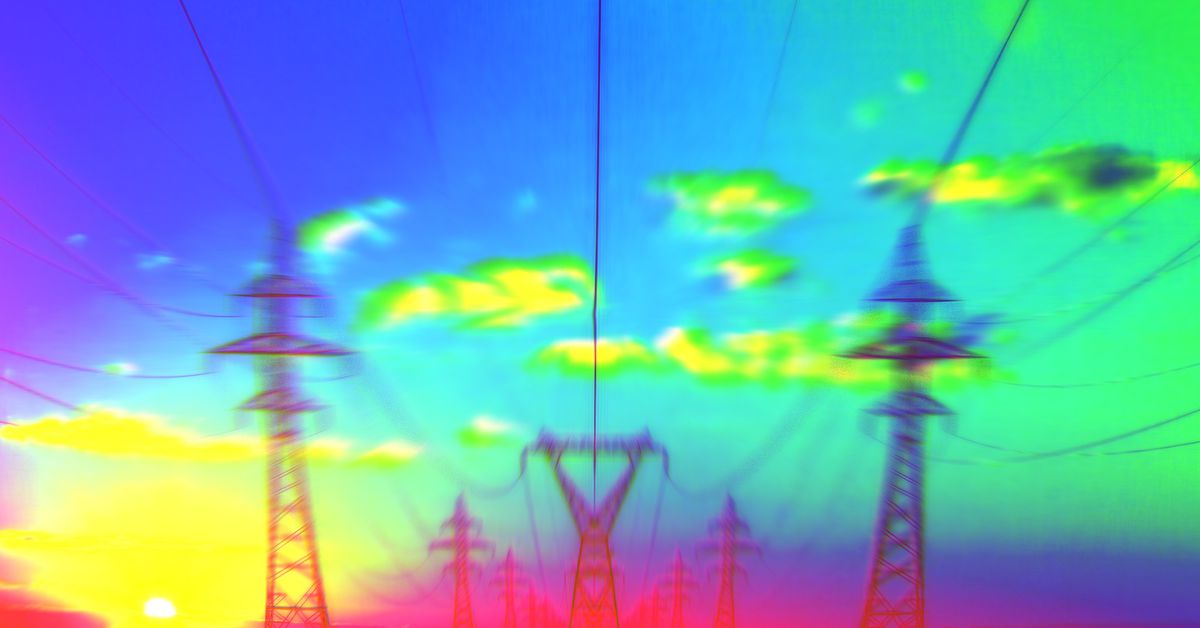Enquires@newsofbitcoin.com
The U.S. Energy Information Administration’s (EIA) recent order instituting a mandatory six-month reporting requirement for cryptocurrency mining poses both concerns and opportunities to the mining industry. The shallow emergency declaration is draconian and the potential use of the collected data for an anti-cryptocurrency narrative risks compromising U.S. competitiveness.
Tom Mapes is founder and president of the Digital Energy Council and former chief of staff for international affairs at the Department of Energy.
The EIA has an extremely broad mandate to collect information regarding energy production and use, and the authorizing statute allows it to target specific energy users and industry subgroups.
Industry leaders are eager to have a serious conversation about the role that digital energy — the ability to transport value created from energy anywhere in the world — can and will play in strengthening the resiliency and reliability of our energy infrastructure. The nexus between crypto and energy markets is becoming exponentially more important as our aging energy infrastructure is challenged by changes in usage and stresses like storms.
As someone who’s served at the Department of Energy (DOE), I believe the orders offer some key opportunities. While most of the mining community agrees the requests are politically motivated by certain members of Congress, the EIA statute directs agencies to pursue information gathering functions in support of requests from Congress, the DOE and others. Some of the questions are standard for the data gathering process and could help promote adoption of a much-needed uniform, consistent reporting framework for our burgeoning industry.
Understanding basic information about mining activity and energy use can be helpful with respect to standardizing information and helping utilities anticipate how much power they will need to provide, or, alternatively, how much load shedding mining operations can undertake during times of stress on the grid.
The major concern is the missing language that explicitly states that the miners’ confidential information will be protected from FOIA requests, standard in previous EIA orders. Here, there’s no language confirming the information will be anonymized and aggregated. Moreover, the survey itself can easily become fodder for an anti-cryptocurrency narrative where energy suppliers are politically pressured into picking winners and losers, based on selective data quoting and context collapse.
The EIA must work with industry. Instead of using the order to gather data that will feed a disingenuous narrative, it would better serve America’s energy needs to assess the ability for load shedding with miners to positively benefit our grid, particularly during winter storms and extended periods of cold weather. And this is exactly what we are highlighting in our response to the EIA’s formal request for comment, due April 9, on the proposed collection of information. Importantly, the EIA indicates it is also seeking to extend its reporting requirements for an additional three years.
Our sector has a great story to tell. We have successfully deployed facilities with utility scale storage-like properties across the country for use during emergencies. The EIA should endeavor to understand how the sector will continue to build that redundancy in the system. They should ask about opportunities for digital energy to work with energy companies, not only through financing projects and entering into power purchasing agreements, but also by providing consistent load and spur renewable technologies like wind and solar energy.
Further, the EIA should ask how digital energy is working with state and local governments to revitalize rural and small-town economies, including working directly with the government as a reuse opportunity for some of the half a million Brownfield sites throughout the country targeted for redevelopment (including repurposing coal plants). Or how digital energy operations are partnering with unions for workforce development training opportunities to ensure good-paying jobs remain in local communities, particularly as data centers continue to pop up around the country to support applications like artificial intelligence and cloud computing.
These orders can still be fixed, particularly as the deadline for the first mandatory survey approaches on Feb. 23 (the last Friday of the month). Since we highlighted this for our members early last week, the Digital Energy Council has been in constant communication with EIA, DOE, Congress and other key stakeholders about resolving these pressing issues.
Members of the Digital Energy Council stand ready to work with the administration to establish a substantive dialogue to discuss how our industry provides myriad benefits for U.S. energy production and how we can partner with the federal government to mitigate risk. This should be a collaborative and informed discussion, not an adversarial and biased one.
Read More: Is the DOE Crypto Mining Data Request an Opportunity for Energy Innovation or for Political
Disclaimer:The information provided on this website does not constitute investment advice, financial advice, trading advice, or any other sort of advice and you should not treat any of the website’s content as such. NewsOfBitcoin.com does not recommend that any cryptocurrency should be bought, sold, or held by you. Do conduct your own due diligence and consult your financial advisor before making any investment decisions.


